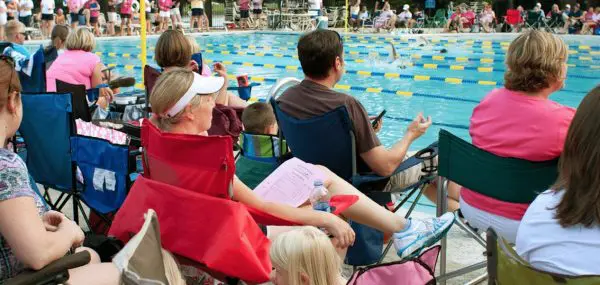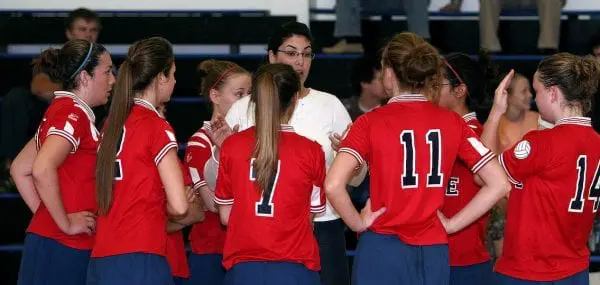Could he?
Would he?
These were the questions I asked before my teen’s freshman year of high school. I wasn’t wondering about his course load, social life, marching band, or student council. No, I was wondering whether or not he could make the varsity team in his chosen sport.

It would be such an accomplishment, I thought. Maybe it could happen!
Of course, when tryouts came, my son did not make the varsity squad. He was picked for the junior varsity (JV) squad, which is typical for most underclassmen.
Over the next two years as he played on the JV team, I watched him blossom as an athlete and a young man. Being on the JV team turned out to be a great fit for him and made me realize that, while there’re many differences between varsity and junior varsity, the junior varsity team still offers a lot of benefits for any young athlete.
JV vs Varsity: The Benefits of Junior Varsity
1. Resilience
Perhaps the greatest benefit to playing on the Junior Varsity team was that my son was cut from the varsity team and did not quit. He learned to be resilient in the face of rejection. He joined the JV team, worked hard to master his skills, focused on his attitude, and aimed to make the varsity team in the future.
Most importantly, he did not give up.
2. Same size, same age
Boys, in particular, mature physically and emotionally at different ages through their high school years. Take my son, for instance. He weighed 120 pounds as a freshman. Meanwhile, there were some upperclassmen who topped 300 pounds. Junior varsity teams really do level the playing field, so to speak, for younger players.
As my son learned, it’s also fun to play with other kids your age. Often, teens in the same grade already know each other from recreation leagues, travel teams, and the classroom. It was comfortable for me as a parent to continue on my teen’s sports journey with so many parents I had seen in the stands in previous years.
Another perk of playing on a JV team with kids their own age is that they will play longer with the same teammates, developing a rhythm and familiarity on the field or court that can benefit the varsity team when they become juniors and seniors.
3. Leadership
Kids who make the varsity team as freshmen or sophomores will be expected to perform on the field. However, these younger kids may not be tapped for leadership roles on the court or in the locker room. That is because most varsity team captains are older students with more playing time and maturity.
In his sophomore year, my son stepped up as one of the leaders on his JV team. This helped him gain confidence and allowed him to practice his leadership skills, which could translate to the classroom, clubs, jobs, and even the varsity team some day.
4. Less pressure
I remember being disappointed when a reporter from the local news outlet did not stay for the JV game and only covered the varsity game. I felt like my teen worked hard and deserved press, too.
Yet, there are advantages to playing under less glare from the spotlight. Athletes can try out new skills and perform without intense expectations from coaches and the community. My son could make a mistake without getting benched, stay in the game, and try again.
For some JV teams, the schedule is less intense—whether it’s shorter practices or fewer tournaments. For my son, playing on the Junior Varsity team made sports fun again.
5. There’s time
Each year, another crop of seniors will graduate and the JV players will be prepared to take their place. Teens like my son don’t need to worry if they spend a year or two on the JV squad— the varsity team will still be there, and need new players, in the future.

My son made the varsity team this year, as a junior. While I look forward to watching him play at this level, I am grateful for the years of experience he had on the junior varsity team. It provided him with a meaningful place to play the sport he loves, while teaching him how to lead and strengthening his bonds with teammates. And that, I think, is what sports are all about.




